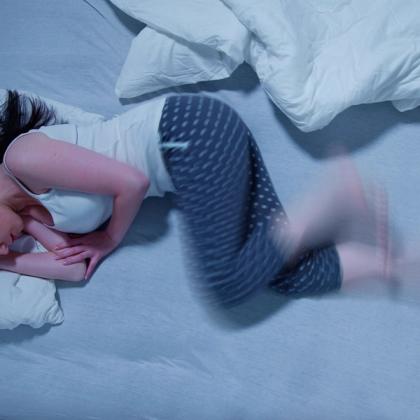This podcast episode is worth 0.36 CPD credits. Upgrade to Pro
Restless leg syndrome (RLS) is prevalent in around 5–10% of the population and can result in an impact on quality of life that is comparable to conditions such as type 2 diabetes and osteoarthritis. It can result in significant impairments in sleep, energy, daily activities and behaviour and is associated with anxiety and depression in those who experience it. In this episode, Dr Kate Chesterman discusses the diagnosis and investigation of this distressing condition along with three principles that will help to guide its management.
Key references and resources
- NICE CKS. https://cks.nice.org.uk/topics/restless-legs-syndrome/.
- BMJ Best Practice. https://bestpractice.bmj.com/topics/en-gb/65.
- Healthcare Improvement Scotland: Right Decision Service. https://rightdecisions.scot.nhs.uk/tam-treatments-and-medicines-nhs-highland/therapeutic-guidelines/nervous-system/restless-leg-syndrome-rls-guidelines/.
- Resting Legs Syndrome Rating Scale. https://biolincc.nhlbi.nih.gov/media/studies/masm/IRLS.pdf?link_time=2019-07-07_21:09:19.282153.
- NHS Inform. https://www.nhsinform.scot/illnesses-and-conditions/mental-health/mental-health-self-help-guides/sleep-problems-and-insomnia-self-help-guide.
- NHS Inform. https://www.nhsinform.scot/illnesses-and-conditions/brain-nerves-and-spinal-cord/restless-legs-syndrome/.
- RLS-UK. https://www.rls-uk.org.
Key take-home points
- RLS probably occurs due to a dysfunction of the dopaminergic system.
- Iron deficiency predisposes to RLS, and this may be because the rate-limiting step of dopamine synthesis requires iron.
- RLS is common in conditions that result in iron deficiency such as pregnancy and end-stage renal disease.
- Diagnosis is based on the history of an irresistible urge to move the legs, usually accompanied by uncomfortable and unpleasant dysesthesia. The urge to move the legs begins or worsens during periods of rest or inactivity and is relieved by movement. These symptoms should not be attributable to another condition.
- The validated RLS rating scale can help to grade the severity of symptoms as well as assess response to treatment and monitor progression of the condition.
- There are no investigations to confirm diagnosis, but iron studies are recommended in all patients due to the association with iron deficiency. Other investigations can be added depending on the patient’s history and may include full blood count, urea and electrolytes, liver and thyroid function, HbA1c and vitamin B12 and folate.
- Treatment involves addressing any underlying causes (for example, investigating and managing iron deficiency) and self-help advice, including sleep hygiene, reducing caffeine and alcohol intake and regular, moderate exercise.
- Drug treatment can be considered for those with moderate or severe symptoms that have not responded to self-help or the management of underlying conditions.
- First-line treatment options include gabapentinoids (an off-label use) and non-ergot dopamine agonists.
- Dopamine agonists have been associated with a high number of complications (including sleepiness and sudden sleep onset, augmentation and impulse control disorders), which has led to a move towards prescribing gabapentin or pregabalin first line.
- For those with the intermittent form of RLS, weak opioids (such as codeine) or hypnotics (like benzodiazepines or z-drugs) can be considered for short, intermittent use for painful symptoms or significant sleep disturbance, respectively.
Create an account to add page annotations
Annotations allow you to add information to this page that would be handy to have on hand during a consultation. E.g. a website or number. This information will always show when you visit this page.
